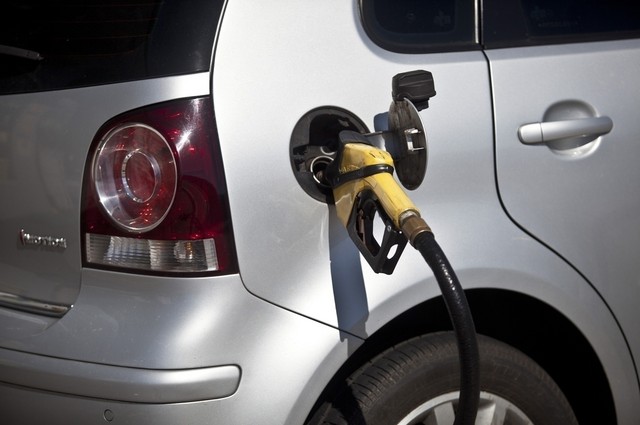- Fuel Queues Return to Lagos, NNPC Allays Scarcity Fear
There was fear of a fresh round of fuel scarcity on Thursday as many filling stations in parts of Lagos and Ogun states did not sell Premium Motor Spirit, popularly known as petrol, to motorists as they had run out of the product.
Marketers have in recent months been relying on supply from the Nigerian National Petroleum Corporation, which is now responsible for about 90 per cent of the importation of the product and sells to marketers at N131 per litre.
The NNPC, in its latest monthly report, said it remained the major importer of petroleum products, especially the PMS, in spite of liberalisation of petroleum products and government’s intervention meant to ease the marketers’ access to foreign exchange.
In the past, marketers were importing 70 per cent of the products, while the NNPC was bringing in the balance, being the supplier of last resort.
A source, who is an executive in a Lagos-based oil marketing company, told one of our correspondents, “There have been supply issues in recent days as the supply from the NNPC could not meet the demand from marketers. Most of the marketers are not importing the product largely because of foreign exchange problems.
“Everybody has been rationing the little supply they are getting from the NNPC. Now, there are queues in some filling stations. The government should make forex available for the marketers to import the product.”
Motorists queued for petrol at the few filling stations that dispensed the product on Thursday, while some independent oil marketers refused to sell petrol to consumers.
Many motorists, who were heading for their places of work and trade, were caught unawares by the sudden decision of many of the filling stations not to sell the product, while the few ones that dispensed the PMS did so from one or two pumps.
However, the NNPC said the pockets of fuel queues in Lagos and some other parts of the country would soon disappear as it had up to 36-day sufficiency of the PMS.
It stated that mild queues were sighted in parts of Abuja on Wednesday, but noted that the queues had disappeared by Thursday.
The Group General Manager, Group Public Affairs Division, NNPC, Mr. Ndu Ughamadu, told one of our correspondents that the queues were largely due to panic-buying.
He said, “There is no cause for alarm and nothing like petrol price increase. The group managing director of the NNPC addressed some executives today where he said the country had 36-day sufficiency. If you have up to 36 days’ sufficiency, then what’s the need for such panic?”
When asked why some independent marketers were not dispensing petrol, he replied, “They have been lifting from us and all our depots are on. The independent and major marketers are lifting from us. The key issue is to look at the level of product sufficiency that a country has and we are making sure that Nigeria is wet with products.
“Even yesterday (Wednesday), some areas in Abuja experienced pockets of queues; but today, all the queues have disappeared. So, the Lagos queues or wherever you find queues in Nigeria will disappear too, because we have enough product to go round.
“The queues are mainly because consumers tend to react to any rumour; if some marketers say they are not going to do this or that, people will start rushing. But we want to assure Nigerians that there is no cause for alarm.”

 Forex3 weeks ago
Forex3 weeks ago



 Naira2 weeks ago
Naira2 weeks ago
 Billionaire Watch2 weeks ago
Billionaire Watch2 weeks ago




 Naira2 weeks ago
Naira2 weeks ago




 Naira2 weeks ago
Naira2 weeks ago






 Naira4 weeks ago
Naira4 weeks ago


 Naira1 week ago
Naira1 week ago






 Naira4 weeks ago
Naira4 weeks ago






















